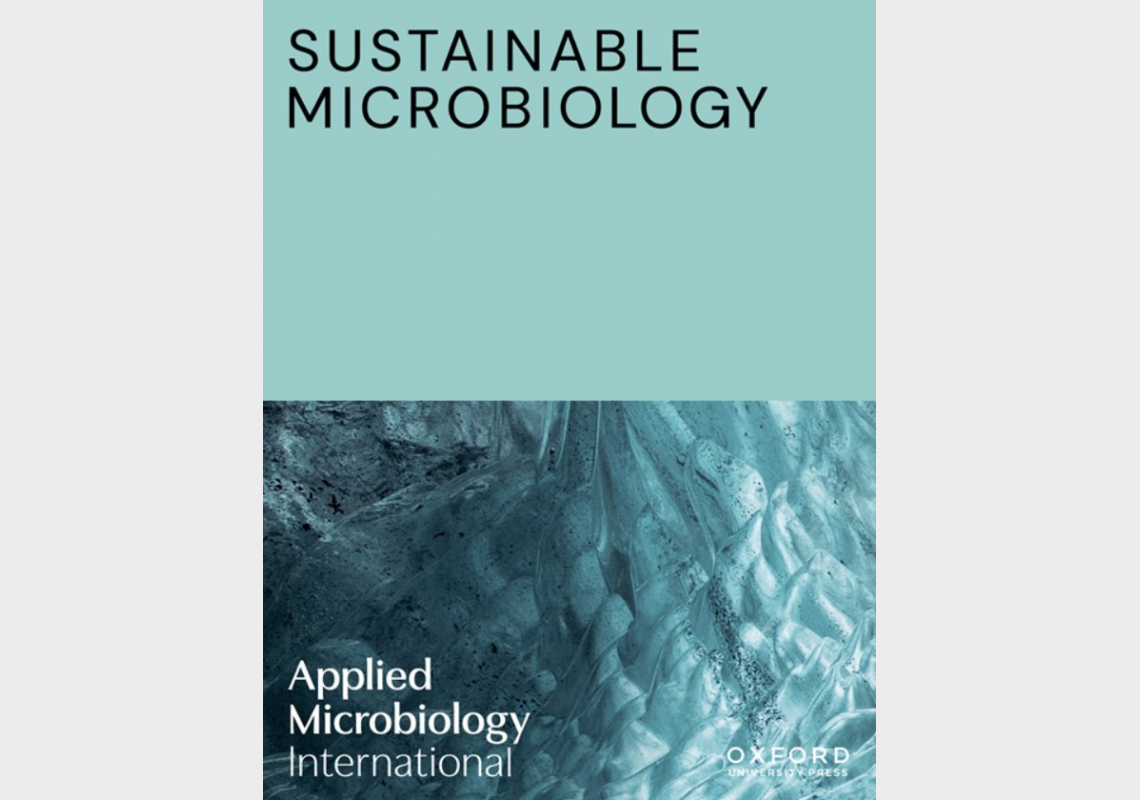2024 is an exciting year for AMI Journals, starting this month with the launch of the first published content in Sustainable Microbiology, our new open access journal, which will apply microbiology to sustainability.
You can read the first editorial from Editor-in-Chief, David Pearce introducing the Journal, alongside our first research, reviews and policy papers all published in the inaugural volume.
Introducing the Journal, Dr Pearce said: ”It is a great pleasure to write this editorial, published alongside our first content, to introduce some context for the launch and share our vision for the future. We are delighted to be launching in partnership with Oxford University Press and welcoming a new journal to the AMI family.
”Our Journal will be open access, ensuring maximum reach and visibility of authors’ work. We will take a novel approach, drawing together publications from different sectors, including policy and industry, as well as academia, with the aim of stimulating interdisciplinary collaboration that leads to scientific advancement.”
Content highlights
The new Journal will offer policy content, which will highlight how new microbiological understanding has the potential to support and improve policy and decision-making; or deliver specific impact on sustainability.
Industry Spotlight articles will showcase new products or services specifically applying microbiology to the UN SDGs, focusing on the underlying science.
”We will also publish original research and high-quality reviews. Our scope is broad, covering all microbes in their full diversity and complexity, in which the authors can describe the ability of the scientific observations to help deliver specific impacts on sustainability,” Dr Pearce said. ”Published articles will contain a ‘sustainability statement’ making such links clear to readers, be they academics, working in industry, practitioners or at the policy level and helping authors to demonstrate the potential impact of their work.”
Continuous publication model
The Journal will use a continuous publication model, publishing new content in the first volume throughout the year, so sign up for alerts so that you don’t miss new articles as they are published.
The journal is sponsoring the Viruses of Microbes UK meeting this month at Northumbria University, where we will be seeking authors for our themed collection on bacteriophages, guest edited by Professor Darren Smith.
You can also meet us at the Environment Workshop on ‘Microbes as Safeguards of the Environment’ in Baeza, Spain in March. Look out for the themed collection from the workshop in the Journal later in the year, guest edited by Professor Purificación López García, Professor Thomas K Wood and Professor Jack Gilbert.
Our vision
“Our vision is that Sustainable Microbiology will help to stimulate research, open up the conversation, draw attention to policy-level work being carried out in this field, foster collaborations between academia and industry and clearly demonstrate the crucial role microbes have to play in improving global economic, social, and environmental sustainability,” Dr Pearce said.
”We have spent time over the past year meeting our community of future authors, reviewers and readers at conferences and symposia. We have been delighted by the positive reaction to the journal’s launch. Whilst there still may be much work to do in achieving the UN SDGs, this is a community that is working hard on these challenges. We are ready to support you and showcase your important contributions.”
Editorial board
The team has assembled an international Editorial Board of subject experts, who are committed to providing rapid and constructive peer review of submitted manuscripts. We will continue to recruit additional editors as the journal grows and to ensure the broadest subject coverage, always with consideration of gender, geographical and career-stage diversity.
We look forward to receiving your submissions of applied microbiology research, reviews or policy contributing to AMI’s goals: Food Security, One Health, Ocean Sustainability, Healthy Land, Clean Water, Climate Action and Economic Equality. Check our website for our first themed collections and submit your work today and receive free membership to AMI for one year when your paper is published.
Notes for Editors
Applied Microbiology International (AMI) is the oldest microbiology society in the UK and with more than half of its membership outside the UK, is truly global, serving microbiologists based in universities, private industry and research institutes around the world. AMI provides funding to encourage research and broad participation at its events and to ensure diverse voices are around the table working together to solve the sustainability development goals it has chosen to support. AMI publishes leading industry magazine, The Microbiologist, and in partnership with Wiley and Oxford University Press, publishes six internationally acclaimed journals. It gives a voice to applied microbiologists around the world, amplifying their collective influence and informing international, evidence-based, decision making.
Oxford University Press (OUP) is a department of the University of Oxford. It furthers the University's objective of excellence in research, scholarship, and education by publishing worldwide. OUP is the world's largest university press with the widest global presence.
OUP publishes more than 500 academic and research journals covering a broad range of subject areas, two-thirds of which are published in collaboration with learned societies and other international organizations. It has been publishing journals for more than a century and, as the world’s largest university press, has more than 500 years of publishing expertise.



